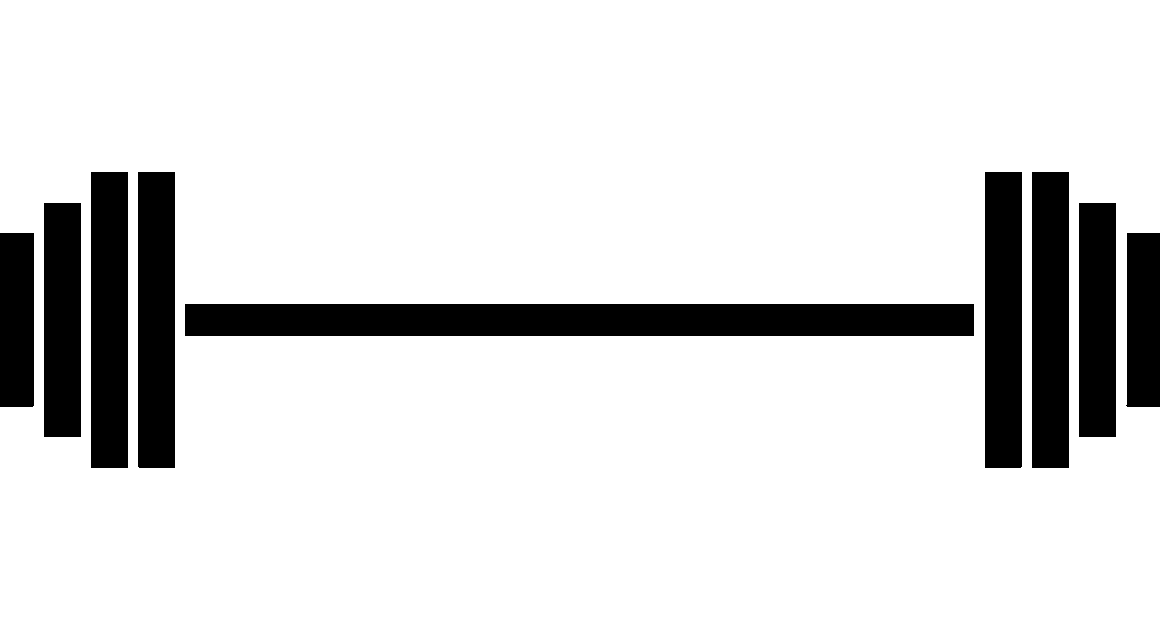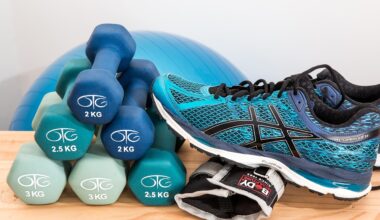Common Weightlifting Mistakes in Powerlifting Competitions
Many lifters make critical mistakes during powerlifting competitions. Understanding these common errors can significantly improve performance and safety. One frequent issue is improper warm-up techniques. Lifters often neglect to warm up adequately, leading to decreased performance or injury risks. A proper warm-up enhances blood flow to muscles and reduces the chances of strains. Lifters should ensure their warm-up includes dynamic stretches and specific movements related to their lifts. Another mistake is not focusing on technique. Many feel pressured to lift heavy in competitions, sacrificing form for weight. This can lead to dangerous injuries and reduced effectiveness in the lifts. Prioritizing correct posture and motion patterns during every lift is crucial. Setting realistic goals is essential for both training and competitions. Lifters often set excessively ambitious targets, resulting in mental stress and potential injury due to overexertion. Having achievable, incremental goals can lead to long-term progression. Moreover, neglecting the psychological aspects of competition can hinder performance. Overthinking or letting nerves take over can cause distractions and hinder focus. Careful preparation and positive mental strategies are necessary for success in weightlifting events.
A key area to focus on is grip strength, which is essential for successful lifts. Lifters often overlook their grip during training, leading to weak performance during competitions. Ensuring a strong grip helps maintain control over the barbell, especially during the deadlift and squat. Investing time in grip-strengthening exercises can pay off significantly during actual lifts. Additionally, lifters should be cautious about their weight selection. Many amateurs misjudge their abilities, opting for weights that are too heavy. This mistake can lead to failed lifts and lost morale. It’s recommended to gradually increase weight, listening to one’s body to determine suitable limits. Proper nutrition leading up to the competition plays a vital role too. Inadequate fueling can result in fatigue, impacting performance adversely. Consuming sufficient carbohydrates and proteins prior to an event supports energy levels and muscle repair. Staying hydrated is equally critical; dehydration can lessen strength and stamina. Furthermore, lifters must also consider their equipment, such as shoes and belts. Using inappropriate gear can compromise performance and safety. Selecting the right equipment tailored to individual lifting styles is vital, as this contributes to overall lift efficiency and confidence during competitions.
Neglecting Recovery Strategies
Recovery is often undervalued, yet it is a significant component of effective weightlifting. Many athletes engage in rigorous training without allowing sufficient recovery time, leading to burnout and injuries. Post-training recovery is crucial for muscle healing, strength gains, and overall performance. Incorporating rest days and cross-training can facilitate proper recovery, allowing muscles to repair and grow. Beyond physical recovery, mental recovery is equally essential. Engaging in relaxing activities, like meditation or light physical activity, can diminish competition anxiety. Lifters frequently underestimate the impact of rest on performance; without proper recovery, the body may struggle to adapt to training stress. Finally, analyzing lifting videos can aid in recognizing mistakes. Filming performances allows lifters to self-assess their techniques and identify flaws. This feedback mechanism is vital in the continuous improvement process. Lifters should take time post-lift to review their footage objectively and make necessary adjustments to their techniques. Incorporating these recovery strategies and feedback processes in training can greatly enhance lifting efficacy in competitions.
In addition to the previously mentioned components, maintaining a positive mindset plays a crucial role in lifting performance. Negative self-talk and overwhelming pressure can cripple an athlete’s ability to perform at their best. Cultivating a supportive environment and surrounding oneself with encouraging individuals can help alleviate this stress. Visualization techniques, where lifters mentally picture themselves achieving their goals, can foster confidence before lifts. This mental preparation, combined with solid training, sets the stage for success in competitions. Lifters also benefit from having a clear plan for each lift during a competition. Relying on instinct in high-pressure situations can lead to poor decision-making. Preparing a systematic approach, including specific cues for each lift, can enhance focus and performance. Furthermore, pacing oneself between lifts can support sustained energy levels. Rushing through attempts or not taking enough time to recover can hinder performance. Lifters should be mindful of their energy expenditure and strategy throughout the competition. Each lift should feel like a calculated effort, blending physical exertion with mental clarity and thoughtfulness.
Managing Expectations
Managing expectations is vital for a healthy competitive mindset. New lifters may have high hopes for their performance, leading to extreme stress and disappointment. Realistic expectations, grounded in individual capability and effort, help cultivate a more satisfying competition experience. Establishing personal benchmarks is also essential, reflecting individual progress rather than unattainable standards set by others. Listening to one’s body is increasingly important as competition approaches. Fatigue and injury often go unnoticed until they significantly affect performance. Attuning oneself to bodily signals allows lifters to make informed decisions about their training intensity and competition readiness. Finally, learning from the competition experience is not to be overlooked. Every event offers insights for improvement. Whether the competition was successful or disappointing, reflecting on performances enables athletes to identify strengths and weaknesses. This process of continual learning ensures progress as lifters evolve in their training. By embracing a growth mindset, athletes can maintain motivation while enhancing their skills. Thus, a balanced approach that avoids undue pressure and promotes enjoyment can lead to long-lasting success in powerlifting competitions.
Furthermore, staying technologically updated is essential in today’s lifting environment. Many lifters shy away from utilizing data and technology, which can offer valuable insights for performance improvement. Wearable devices that monitor heart rates, muscle engagement, and fatigue levels can enhance training regimens. Similarly, apps that track lifting patterns assist in evaluating progress over time. The data obtained can help in refining training strategies based on analytics, leading to improved performances. Lifters should embrace these emerging technologies thoughtfully to benefit from incremental progress. Additionally, establishing supportive relationships with coaches can help guide lifters on their journeys. Experienced coaches can provide tailored training programs and constructive feedback, which can accelerate growth. Communication is key; lifters must be candid about their goals and struggles for coaches to offer adequate support. Regular meetings to discuss progress and address concerns can lead to healthier athlete-coach dynamics. Encouraging feedback from peers also fosters a sense of community and accountability. This environment supports skill development and mental resilience, both critical for success. Leveraging a combination of technology and interpersonal support can cultivate a holistic approach to powerlifting preparation.
Conclusion
In conclusion, numerous factors contribute to successful performances during powerlifting competitions. Recognizing and mitigating common mistakes is essential in enhancing effectiveness as a lifter. Prioritizing technique over sheer weight, while focusing on mental preparedness, can significantly improve outcomes. Lifters should budget time for proper recovery, ensuring their muscles and minds are in optimal condition. Utilizing technology for data-driven insights further supports training enhancement. Developing realistic expectations tailored to individual limits fosters a positive competitive mindset while learning from experiences encourages continual growth. Building supportive networks with coaches and peers lays a foundation for resilience. Throughout training and competition, maintaining focus and adapting strategies can yield remarkable results. Lifters who actively reflect on their processes and embrace improvement mindsets tend to succeed. Competition can be daunting; however, possessing a strategic approach enhances enjoyment and efficacy. Ultimately, combining practical techniques with supportive environments can lead to deeper achievements in powerlifting. This comprehensive understanding allows lifters to face competitions with excitement and preparedness, turning potential mistakes into opportunities for personal growth and excellence in the sport.



